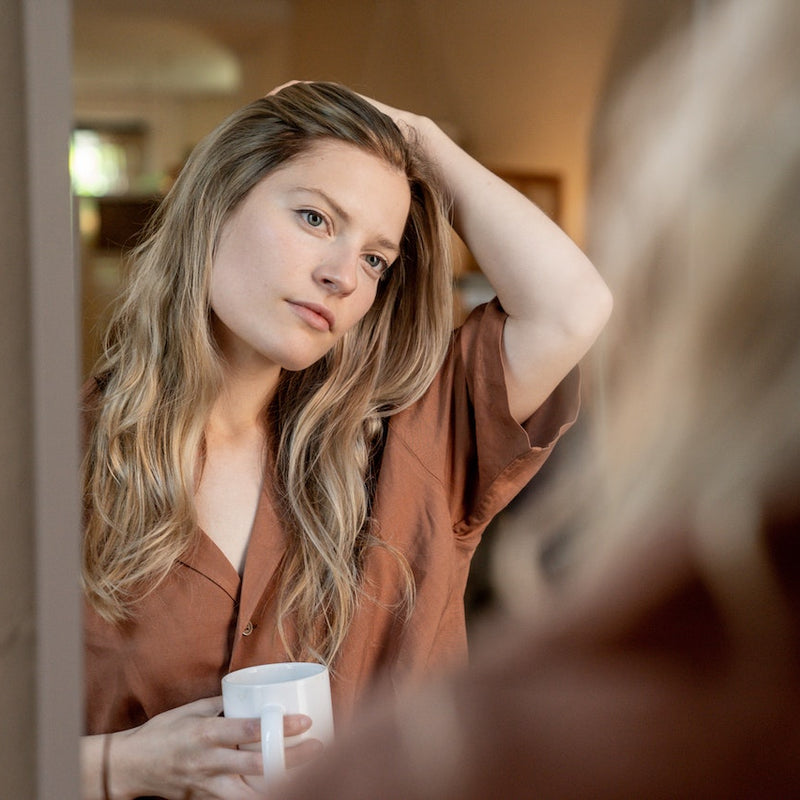Strategies to Cope During Fertility Treatments

Fertility treatments can be very stressful and lead to anxiety and depression. In this interview, Abby Mercado interviews Dr. Ali Domar, a world expert in reproductive psychology.
Interview between Dr. Ali Domar and Abby Mercado
Dr. Ali Domar has 34 years of experience as a reproductive psychologist, has written six books on the topic and is the creator of the Mind Body Program for Infertility. Below, Dr. Domar is interviewed by Best Shot’s Co-Founder & CEO, Abby Mercado. Best Shot is a fertility-focused software company that acts as the connective tissue between the provider and the pharmacy, with the patient’s body & mind at its core. In the transcribed interview, Dr. Domar and Abby discuss access to mental health resources, strategies to cope during fertility treatments and their hopes for the future of the fertility industry.
Ali, you have a lot of experience working with fertility patients during treatments. Research shows that after beginning their journey with a fertility clinic, 56 percent of patients report depression and 76 percent report anxiety. From your vantage point, what is a patient’s experience with infertility like, and how does that experience affect their mental state?
Infertility treatment is wonderful because it can lead to babies, and most of them are pretty cute. But infertility treatment can also be very stressful. We published a paper years ago that said that women with infertility had the same level of anxiety, and depression, as a woman with cancer or heart disease. Going through treatment can be very, very challenging.
Women with infertility had the same level of anxiety, and depression, as a woman with cancer or heart disease.
One area I have been researching is why people drop out of treatment. Studies show that the number one reason people drop out of treatment is cost. If patients don't have insurance, if they don't have the financial resources, then they're going to drop out because of the cost, but the number two reason is the emotional burden of treatment. So if you think that through, a patient goes through a cycle and it doesn’t work and because they have insurance, that patient could do three or more cycles but they're so stressed by that first cycle that they stop treatment, which means they probably won't have a baby. And that absolutely breaks my heart that people drop out of treatment just because they're so stressed, because there are evidence-based ways to address that stress.
How and why should mental health be a focus for the fertility field?
The term for a mental health professional who is actually employed by an infertility clinic is called embedded. I know it's an army term, but we use it in this field. There are probably a dozen or so infertility clinics in the country that have an embedded mental health professional, but it should be this way in every clinic.
Think of the way things work at Boston IVF, where I am embedded. Before the pandemic, there were psychologists physically on-site every day, which means that there was always someone available to help a patient in crisis – if someone had a prenatal scan that didn't show a heartbeat, or if someone woke up from an egg retrieval and there weren't as many eggs as expected or if someone got blood test results that upset them. Think of what that immediate support can mean for a patient. I think it's really important to have somebody physically there who can talk to patients, while they are in crisis, and not say, “Oh, we're so sorry you're feeling sad, here's a phone number, call that person for help.” I can go into the recovery room and see patients, I can go into ultrasound rooms. Any patient in crisis is guaranteed to have a mental health professional to talk to within the hour.
I believe that every patient who's going through infertility treatment deserves holistic care, which means that their mind and their body should be cared for simultaneously. It's not just about the eggs and sperm, it's about the person's body and soul and heart and mind. We need to teach patients skills to help them cope better with the treatment.
I've had so many patients that have done one or two cycles, and they say to me, “You know, I can't do this anymore, I'm just going to stop.” And then they either see me for a while as their psychologist or they go through the Mind Body Program. They develop so many skills and so much resilience that they can then do cycles until they get pregnant and have a baby. And that should be the end game. For anybody who wants it.
Why is the approach of teaching women different relaxation techniques so potent when addressing anxiety?
I think anxiety and infertility go hand-in-hand. And you know, just simply having blood work every few days can cause anxiety for people going through IVF. Ultrasounds can cause anxiety. For men, just having their semen analysis performed by collecting a specimen in the clinic, that's really anxiety provoking. As one goes through an IVF cycle, you get information almost every day. And hopefully that information is consistently good, but sometimes it's not so good. So every step and every day, people can feel anxiety. And it makes perfect sense. These patients are working so very hard to conceive that of course they feel anxious.
If someone's feeling anxious, they should learn relaxation strategies. So we teach our patients lots and lots of different relaxation strategies. In the Mind Body Program, they learn 10 different relaxation strategies. So, no matter what the situation, no matter what's going on, they have a toolbox of the skills they can use to bring down their anxiety. They have ammunition, they have armor, so that they can get through their treatment in a healthy way.
Many women participate in therapy focused on verbally processing challenges, or traditional talk therapy. The mind/body approach is a bit different. What advantages does a mind/body approach give women?
I'm not one to diss traditional talk therapy because I'm a psychologist and I actually do some talk therapy with a lot of different kinds of patients. However, my other hat is a nerd – I'm a researcher at my core. And if you look at the data on the efficacy of different psychological approaches for individuals going through infertility, a cognitive behavioral or mind/body approach is far more effective than traditional talk therapy.
Cognitive behavioral or mind/body approach is far more effective than traditional talk therapy.
I think it's important for individuals and couples going through infertility to be able to talk about what's going on and what's stressing them out. But I think it's even more important to give them skills and tools so that when they're at a dinner party and someone announces they're pregnant, they have things they know they can do to help themselves feel better in that moment.
To the people reading this who might be scared or nervous about all that fertility treatments entail, what would you say to them?
So I've been working in this field for 34 years. And I've seen thousands and thousands of individuals and couples go through fertility treatment, and I want to say that you really can be okay. You know what I always say to people who are going through the Mind Body Program? The goal of the Mind Body Program is to get your life back.
When someone is about to start the Mind Body Program and I say, “What's your goal for the program” and they say, “I want to get pregnant,” I think okay, that's a good goal but I consider that to be a nice side effect. I say to them, “What I want for you by the end of the program is for you to be the person you were before you started trying to get pregnant.”
“What I want for you by the end of the program is for you to be the person you were before you started trying to get pregnant.”
I want them to become the person who could laugh, the person who could enjoy things, the person who didn't think about this twenty-four-seven, so as opposed to being an infertile woman, for instance, they’re a healthy, happy, engaging woman who happens to be going through infertility.
Best Shot is partnering with Dr. Domar on Mind Body Fertility, a virtual 6-week program that teaches fertility patients mind/body strategies and techniques. Interested? Sign up here.
Reach Out, We're Here
Have questions about your order or products? For the speediest answer, check out our FAQ section. Need something else? Come find us below.
Please keep in mind our regular business hours; Monday-Friday, 9am-5pm CT.
Customer Support
support@natalist.com
Press Inquiries
media@everlyhealth.com
Business & Partnerships
team@natalist.com
Affiliates + Influencers
team@natalist.com
Job Openings
Careers Page























